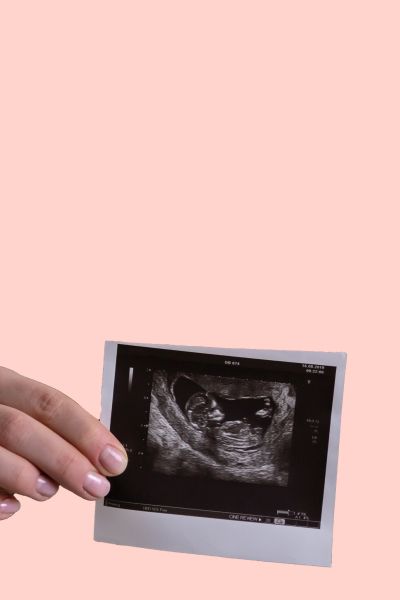
Can Vaginal Infections
Affect My Fertility?
Published on January 24, 2023
Updated on December 17, 2025
Written by Kathleen Morrison
Medically Reviewed by Andrea Sleeth WHNP-BC, MSCP
Key takeaways
- Bacterial vaginosis (BV) may increase your risk of pelvic infections, so early treatment can help support your reproductive health.
- Correctly used, boric acid is safe and can help with vaginal balance without affecting fertility.
- Yeast infections don’t directly cause infertility, but they can impact cervical mucus, which may affect conception.
- Recurrent UTIs do not harm fertility but should be treated promptly to prevent complications, especially during pregnancy.
- Monitoring vaginal health, seeking treatment for infections, and consulting healthcare providers early can protect fertility and overall well-being.
Anyone who’s had trouble getting pregnant knows—you spend a lot of time thinking about your vagina. Everything from the timing of ovulation to the consistency of your cervical mucus becomes something to consider and plan around.
You may find yourself wondering if the incredibly common vaginal infections all of us get at one time or another have impacted your fertility. Bacterial vaginosis, yeast infections, and UTIs affect millions of women and many of us may experience recurring or chronic symptoms—could your vaginal health history play a role in your fertility? Let’s get into the science.
How does bacterial vaginosis impact fertility?
It’s totally normal to wonder if BV could affect your fertility. While BV itself isn’t considered an STI, it’s linked to a higher risk of pelvic infections and other vaginal issues that can impact reproductive health. Research shows that women who experience fertility struggles often have higher rates of BV—but it’s not clear if BV is the direct cause.
The bright side? You have ways to stay on top of it. Treat infections with prescription BV antibiotics (ASAP), keep up with testing, and support your vaginal health with things like boric acid or reproductive probiotics. Doing this can help break the cycle of BV, calm inflammation, and keep your reproductive system feeling its best. Basically, the earlier you tackle it, the better you’ll feel, and it’s one less thing to worry about.
Wisp treatment options are available only after consultation with a licensed medical professional. You should consult with your healthcare provider before starting a new supplement or treatment regimen. Individual results may vary.
Can boric acid cause infertility?
Here’s the good news: when used correctly, boric acid doesn’t usually cause infertility. It’s a safe, non-hormonal way to help get your vaginal health back on track. Boric acid works locally to help balance things out without messing with your hormones or reproductive organs.
Using it can help you feel more comfortable, keep BV in check, and stay confident in your sexual and reproductive wellbeing.
What about BV during pregnancy?
While BV’s impact on fertility is still up for debate, the research shows that BV during pregnancy can be dangerous.
Women who get BV during pregnancy are at higher risk for complications, especially preterm delivery, and their babies are at higher risk for having low birth weights. If you’re pregnant and experiencing any unusual vaginal symptoms, be sure to communicate them to your primary care physician who will be able to best treat and monitor you and your baby’s health.
Do yeast infections make it harder to get pregnant?
Did you know that just about 3 in 4 women will experience at least one yeast infection during their lives? It’s the second most common vaginal infection after BV. The good news is that yeast infections, even when left untreated, do not seem to directly lead to infertility. You may feel uncomfortable and quite itchy, but you won’t experience the scarring or inflammation that PID causes, for example.
However, yeast infections still may impact your ability to conceive and can cause complications during pregnancy. Yeast can alter your cervical mucus, making it harder for sperm to reach the egg. Cervical mucus is thin and clear when you’re at your most fertile—when yeast gets into the mix, it can thicken this mucus and the pH of your vagina may change. These factors can pose challenges to any sperm trying to make their way through the cervix.
If you’re actively trying to get pregnant, the best thing you can do is talk to a medical provider about any vaginal symptoms (even those as common as yeast infection symptoms!) and get them treated properly with prescription antifungals.
Will recurrent UTIs affect my ability to conceive?
If you’ve ever had a UTI, you know how painful and unmistakable the symptoms are. Urgency, pelvic pain, and burning—not pleasant. About half of all women will experience a UTI at some point and 20-30% will experience a recurrence of their infection within 3 months.
Pain and inflammation are hallmarks of this infection, so can it affect your fertility? In a word, no.
UTIs are an infection of your bladder and urinary tract, so they won’t affect your reproductive system. However, you should still seek UTI treatment—UTIs can quickly become serious kidney infections if left untreated.
UTIs and pregnancy
If you’re pregnant, or trying to become pregnant, you may notice you’re getting more UTIs than usual. There’s likely two main reasons for that:
- Sex is a big trigger for UTIs, as the act of penetration can force bacteria into the urethra. Basically, the more sex you’re having, the higher your risk of developing a UTI. Always, always pee after sex to help flush this bacteria and prevent infection. You can also try D-Mannose, an ingredient that flushes bacteria from your urinary tract and supports against infection naturally.
- If you’re already pregnant, you may also find yourself at risk for more frequent UTIs due to changes in your body. Increasing pressure on your bladder makes it likely you will need to urinate more frequently and makes it easier for you to develop an infection. Hormonal changes may also play a role, making it difficult to fully empty your bladder.
If you find yourself with UTI symptoms during pregnancy, tell your healthcare provider right away. UTIs are common during pregnancy, but they can still lead to complications so you’ll want to have them treated as soon as possible.
If you’re on a fertility journey, check out Rescripted for resources, community, and support. There you’ll be able to shop for fertility care, talk with others navigating fertility and pregnancy, and get answers to your most common (and uncommon) fertility questions.
Rescripted and Wisp Inc. are separate and non-affiliated companies.
Keep your vaginal health in check and your fertility worries low
Vaginal infections are super common, and while some, like BV, can have a tricky relationship with fertility, the good news is you’re not powerless. Staying on top of symptoms, treating infections promptly, and supporting your vaginal health with tools like boric acid or reproductive probiotics can make a huge difference. Even yeast infections and UTIs—which can feel totally miserable—rarely affect your ability to conceive when handled properly.
The main point is to not ignore unusual symptoms and get proactive about your sexual and reproductive health. With at-home testing and discreet consultations available, taking care of your vaginal health has never been easier.
Ready to take charge? Check out Wisp for the right treatment for vaginal infections, stay on top of your sexual health, and feel confident about your reproductive journey—all from the comfort of your home.
This blog post is for informational and educational purposes only and should not be taken as professional advice. Always consult with a qualified professional before making any decisions based on the information provided here.





